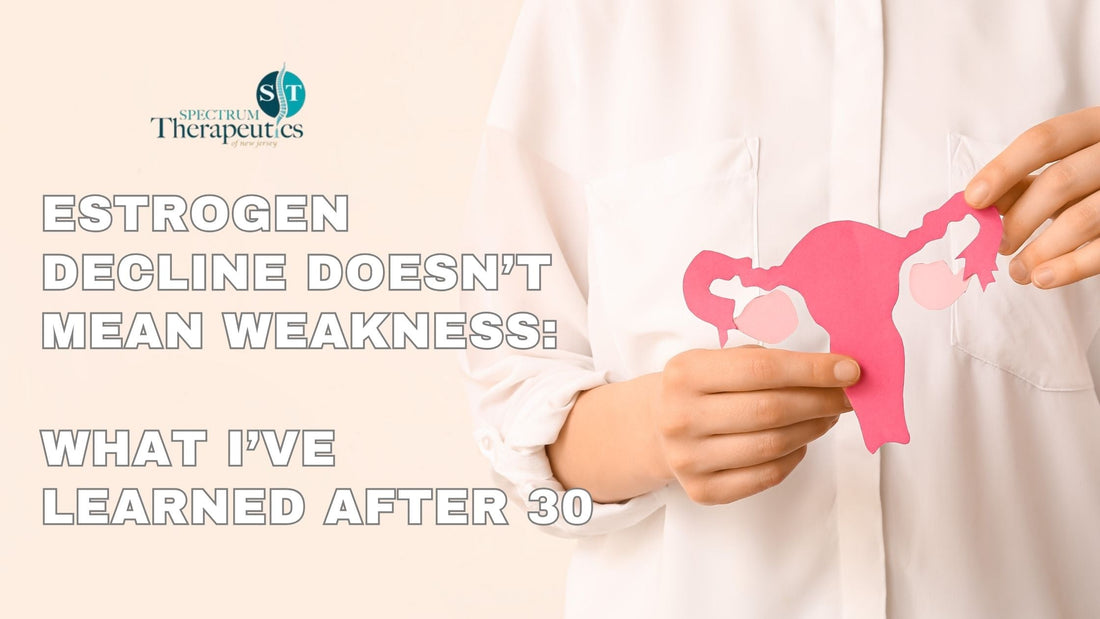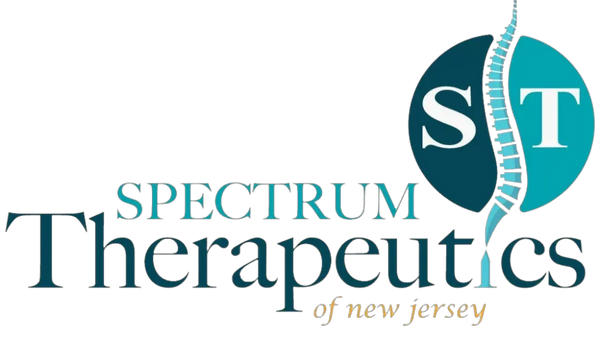
Fighting Back Against Estrogen Decline: What I've Learned About Staying Strong After 30
Dr. Rob Letizia PT, DPTShare
I'll be honest, I never gave much thought to estrogen until my mid-30s when I started noticing changes I couldn't ignore. My energy wasn't what it used to be, my joints ached in ways they never had, and my doctor kept brushing off my concerns with the classic "you're just getting older" dismissal. That's when I decided to dig deeper into what was actually happening to my body.
Here's what I wish someone had told me earlier: estrogen isn't just about reproduction. This hormone is basically your body's multitasking superhero, it keeps your bones strong, maintains muscle mass, protects your heart, and even affects how clearly you think. The kicker? Starting around 30, your estrogen levels begin their slow but steady decline. By the time you hit menopause, you might have only 10-20% of the estrogen you had in your twenties.
The Reality Check I Needed
When I first learned this, I felt frustrated. Why hadn't anyone explained that estrogen affects practically everything? Your bones become more fragile without it. Your muscles don't recover as quickly from workouts. Even your metabolism starts working against you. I realized that all those little changes I'd been experiencing weren't just "normal aging", they were my body responding to hormonal shifts.
The good news? You're not powerless here. While you can't stop estrogen decline entirely, you can absolutely fight back against its effects. After consulting with three different doctors (because the first two weren't taking me seriously), doing my own research, and making some significant lifestyle changes, I've found strategies that actually work.
Why I Finally Started Lifting Heavy Things
For years, I avoided the weight section at the gym. Like many women, I'd been fed the myth that lifting would make me "bulky." What a load of nonsense that turned out to be. Women simply don't produce enough testosterone to build massive muscles without serious pharmaceutical help.
What strength training actually does is preserve the muscle mass that estrogen decline tries to steal from you. Every week you skip resistance training after 30 is a missed opportunity to maintain the strength you'll desperately want in your 60s and beyond. I started with basic movements, squats, deadlifts, push-ups, and gradually increased the weight. Six months in, I felt stronger than I had in years, and my bone density scan showed improvement for the first time in ages.
The research backs this up too. Studies consistently show that resistance training helps prevent the bone loss and muscle weakness that accelerate after menopause. I'm not talking about becoming a powerlifter here, just consistent, progressive strength work that challenges your body.
The Hormone Therapy Conversation Nobody Wants to Have
Let's talk about the elephant in the room: hormone replacement therapy. For decades, women have been scared away from HRT because of studies from the early 2000s that suggested increased cancer risks. But here's what I learned when I really dove into the current research, those early studies had significant flaws, and newer data paints a much different picture.
I'm not saying HRT is right for everyone, but it shouldn't be dismissed outright either. When I finally found a doctor who specialized in women's hormonal health (after being turned away by two others who seemed uncomfortable with the topic), we had an honest conversation about my individual risk factors, family history, and quality of life concerns.
The key is finding a healthcare provider who stays current with the research and doesn't dismiss your symptoms as "just part of aging." If your doctor won't even discuss HRT as an option, find someone who will. You deserve to have all the information to make an informed choice.
Eating My Way to Better Hormone Health
I used to think nutrition was just about calories in, calories out. Turns out, what you eat can significantly impact how your body handles hormonal changes. I'm not talking about following the latest fad diet, I'm talking about strategic nutrition choices that support your changing physiology.
Magnesium became my new best friend. Most women are deficient in this mineral, and it plays a crucial role in hormone regulation and sleep quality. I started taking a high-quality supplement and noticed improvements in both areas within weeks.
Omega-3 fatty acids were another game-changer. I'd always known they were "good for you," but I didn't realize how specifically they support brain health and reduce inflammation, both major concerns as estrogen declines. I now eat fatty fish twice a week and take a quality fish oil supplement on the other days.
The fiber recommendation everyone gives (aim for 30 grams daily) actually makes sense when you understand that fiber helps your body eliminate excess hormones and supports gut health. I've learned to love my morning smoothie packed with berries, flaxseed, and leafy greens.
Here's something nobody talks about enough: how you prepare your vegetables matters. I started eating more raw spinach and kale in salads rather than always cooking them because some nutrients are better preserved that way. Small change, but every bit helps when you're fighting against hormonal decline.
Learning to Advocate for Myself
This might be the most important lesson of all. I wasted years accepting vague explanations and dismissive attitudes from healthcare providers. "That's just what happens when you get older" is not an acceptable answer to legitimate health concerns.
I learned to come to appointments prepared. I started tracking my symptoms, bringing questions written down beforehand, and refusing to be rushed through visits. When one doctor suggested I just "exercise more and eat less" without addressing my hormonal concerns, I found another doctor. And then another, until I found someone who listened.
Don't be afraid to be persistent. Your health is worth fighting for, even if it means having uncomfortable conversations or seeking second opinions.
Where I Am Now
Two years into this journey, I feel more like myself than I have in years. My energy is more stable, my workouts are stronger, and I'm not constantly worried about what my body will feel like in 20 years. I'm not saying it's been easy, making these changes required time, effort, and yes, some financial investment in better healthcare and supplements.
But here's what I know now: you don't have to just accept feeling worse as you age. Estrogen decline is real, but it's not a sentence to inevitable frailty. You can take action, make informed choices, and stay strong and vital well beyond your reproductive years.
The most important thing? Start now. Don't wait until the symptoms become overwhelming. Your future self will thank you for every workout you do, every nutrient-dense meal you eat, and every conversation you have with healthcare providers who take your concerns seriously.
You deserve to thrive, not just survive, as you age. And despite what anyone tells you, that's absolutely possible.



